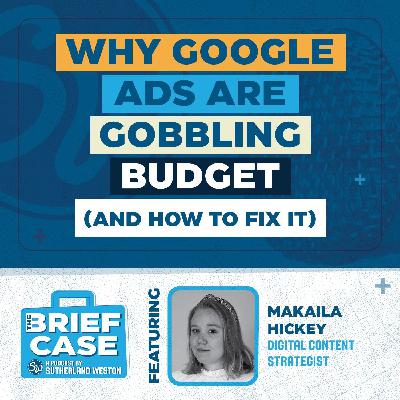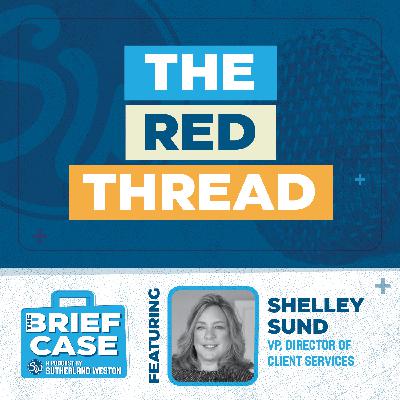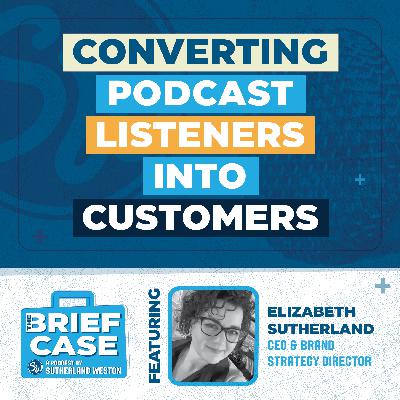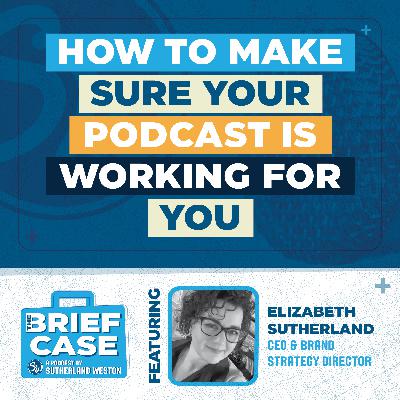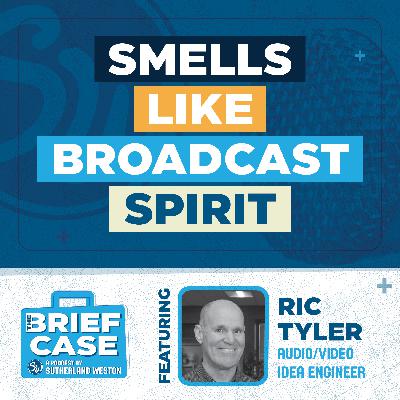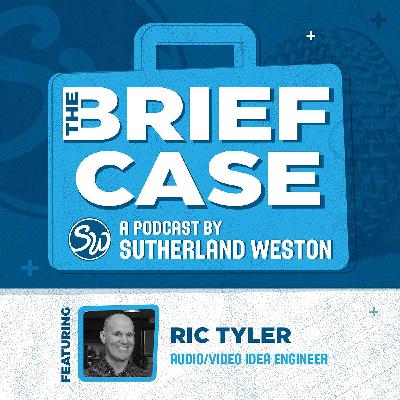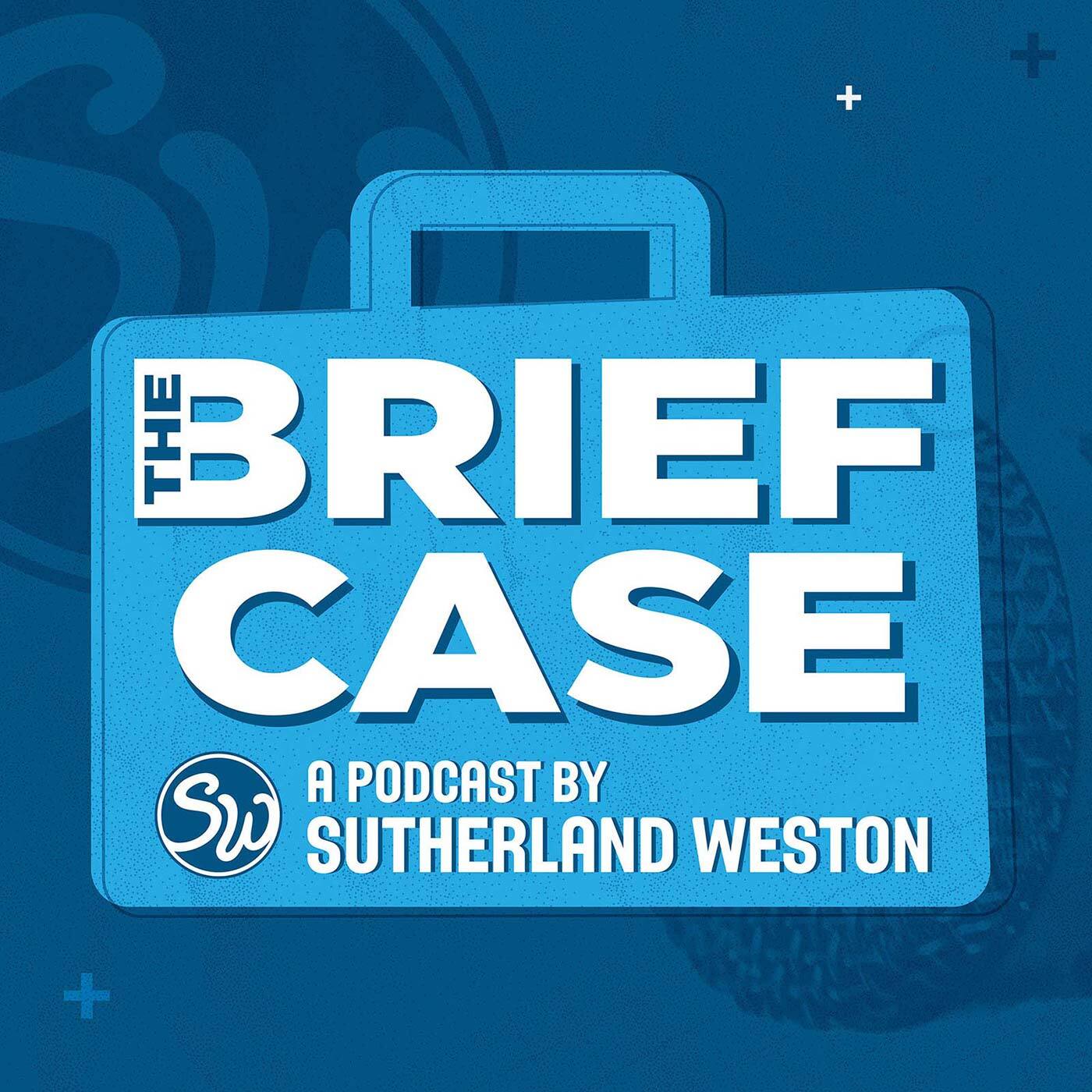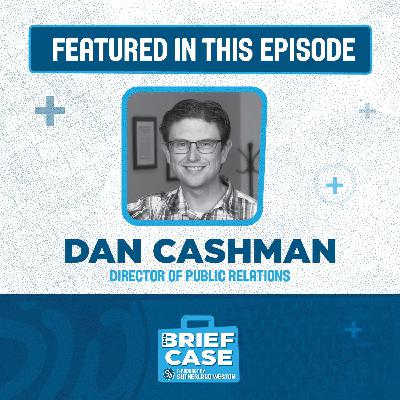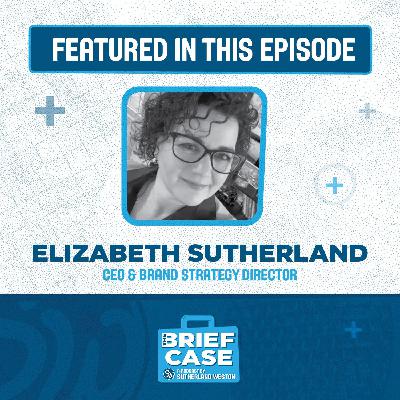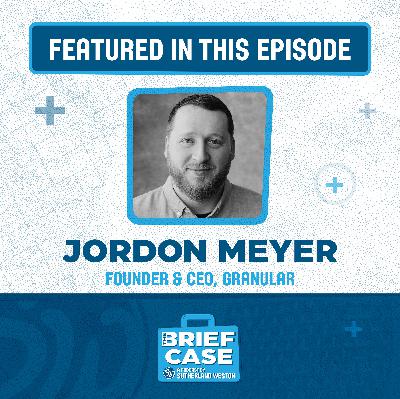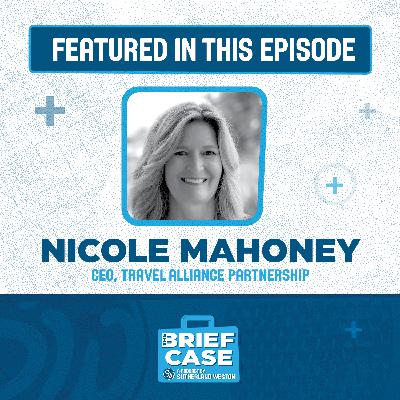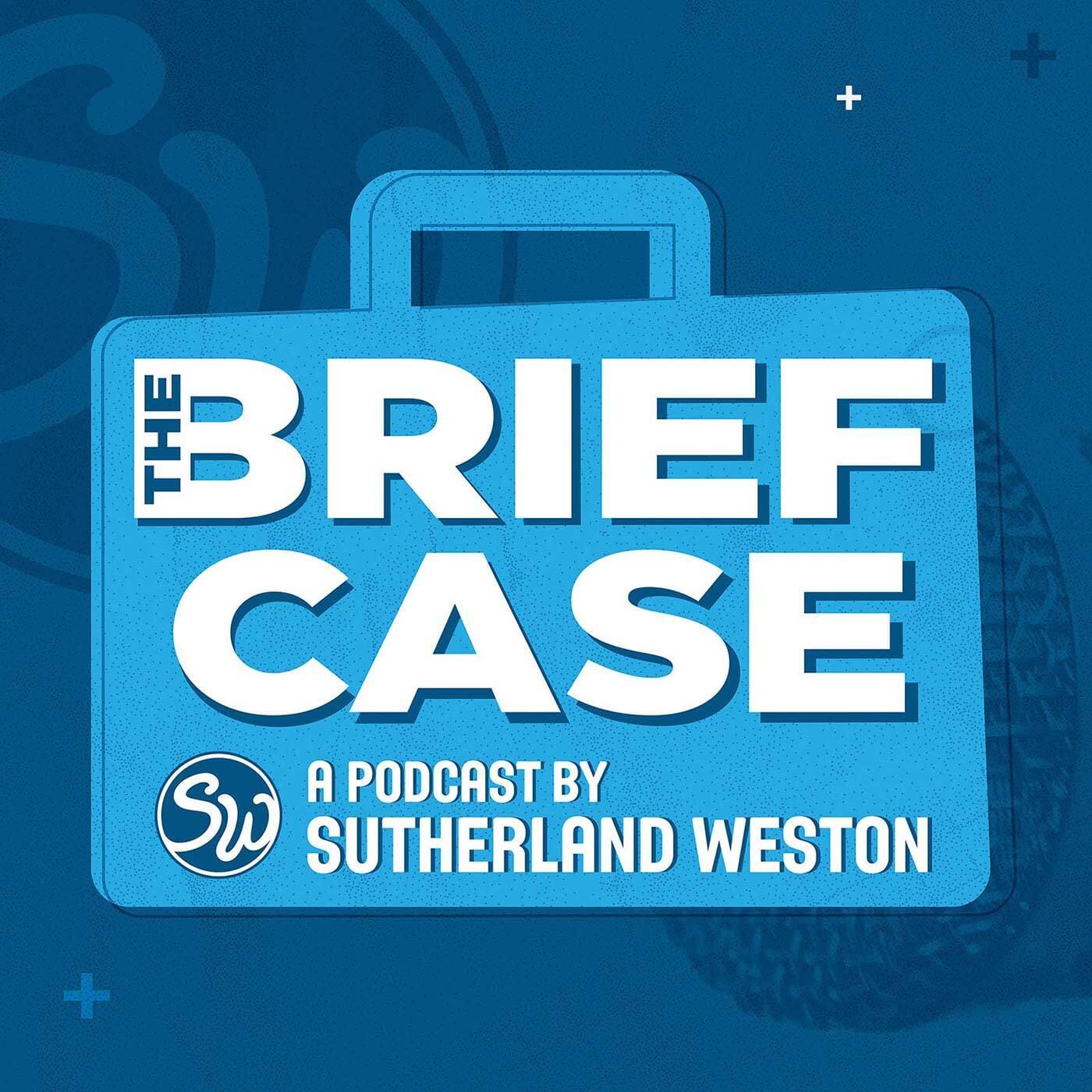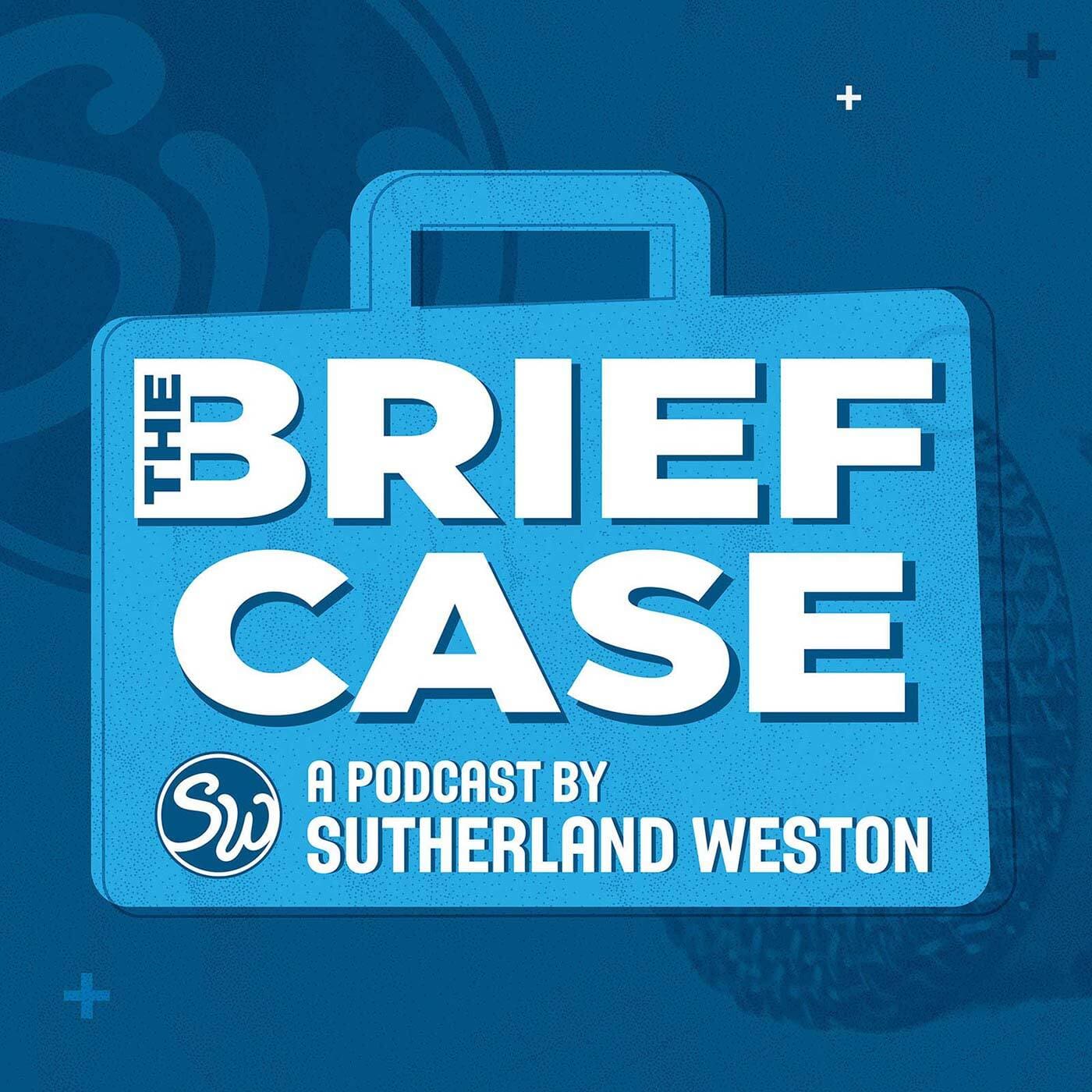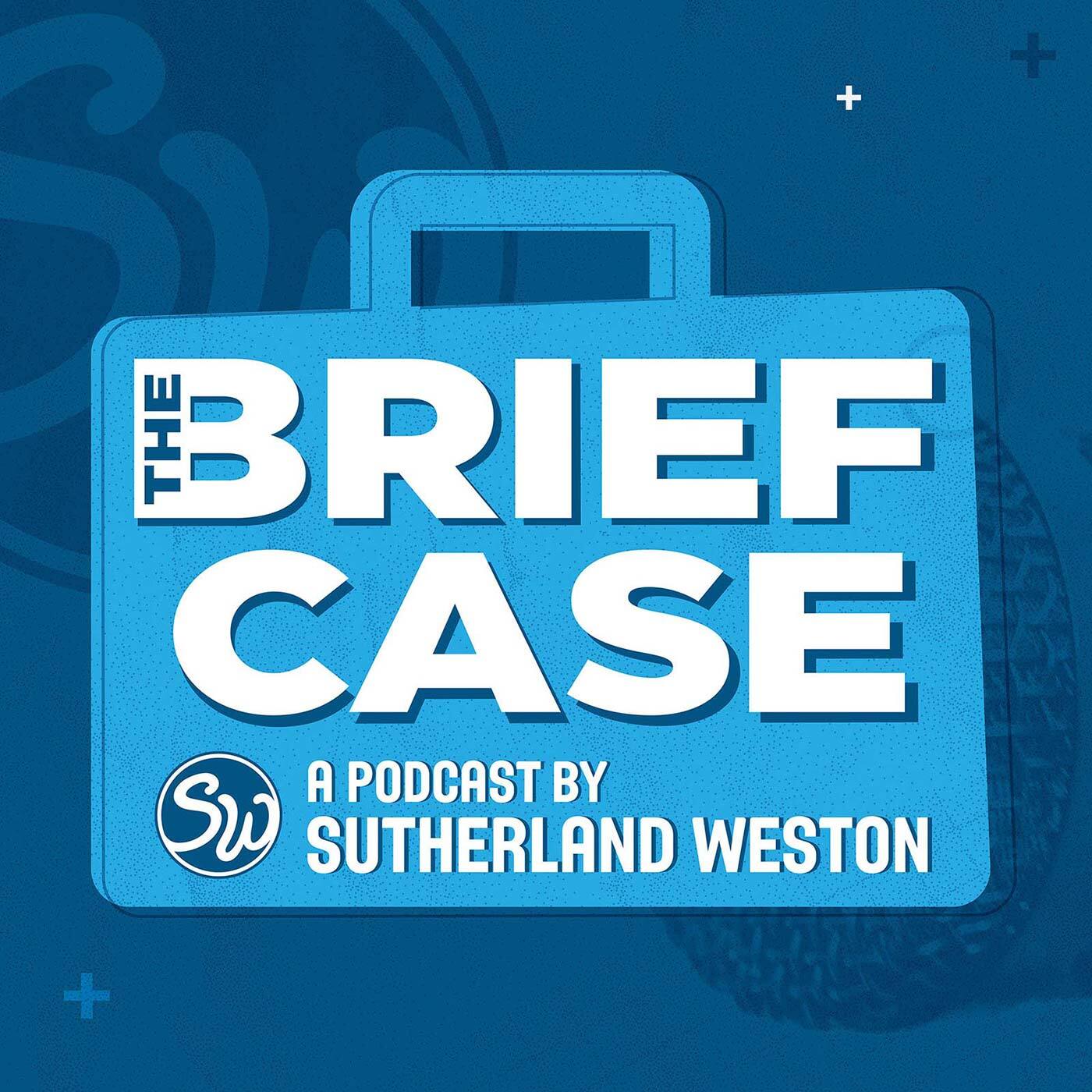Discover The Briefcase | Sutherland Weston
The Briefcase | Sutherland Weston

The Briefcase | Sutherland Weston
Author: Sutherland Weston
Subscribed: 0Played: 0Subscribe
Share
© 2024
Description
Sutherland Weston Marketing Communications, Maine's Premier Marketing and Public Relations Company, presents The Briefcase!
Listen in on our quick conversations -- born from everyday observations -- that deliver practical marketing ideas that you can carry with you!
Consider these "brief" "case" studies!
Gotta question for the Sutherland Weston team? Connect with us at SutherlandWeston.com!
Listen in on our quick conversations -- born from everyday observations -- that deliver practical marketing ideas that you can carry with you!
Consider these "brief" "case" studies!
Gotta question for the Sutherland Weston team? Connect with us at SutherlandWeston.com!
54 Episodes
Reverse
Sometimes, even when you put in the work and fork over the cash, the numbers still look like they don't care. You might start to wonder if you've been ripped off! On this episode of The Briefcase, Makaila Hickey, Sutherland Weston's Digital Content Strategist, talks about some common symptoms of dashboard sickness, and how Google ads don't waste money, it's a bad strategy that does. What you'll learn: Match types are integral to good advertising: a sweet deal on bicycle seats won't mean much to a bus driver. Ads don't live in a vacuum: if you grab the customer's attention but don't deliver on the follow-through, you won't see the numbers you want anytime soon. Improperly tracking your conversions can lead to results that don't look good. By keeping tabs on the right values, you might find you're actually right where you want to be.
On this episode of Sutherland Weston's The Briefcase, Shelley Sund, Vice President and Director of Client Services of Sutherland Weston, leads us down the rabbit hole of brand consistency. What makes a clean image? Why is it so important? Who else is doing this right...? Join us before the conspiracy board as we crack this case wide open… the case of The Red Thread! What You'll Learn Establishing a common theme between different parts of your brand increases the magic and reinforces your mission statement. Big brands like Disney or Dove use The Red Thread to reinforce their image and philosophy. You don't want to look like a garage sale: establishing a specialized theme is important to establishing success.
On this episode of Sutherland Weston's The Briefcase, CEO Elizabeth Sutherland joins Ric Tyler and continues their discussion on the art of the podcast and how to ensure it works as intended. You might have ten hundred hits, but how do you get those numbers off the screen and into your business? Elizabeth gives three invaluable tips on the art of turning listeners into customers! What You'll Learn Give listeners a reason to act, and quick! Give them something to do! Podcasts with guests are more than good conversation; they're built-in marketing partners. Your podcast works best if it is tied to other avenues of connection.
On this episode of Sutherland Weston's The Briefcase, CEO Elizabeth Sutherland joins Ric Tyler as they get a little meta with this all, and talk about just what makes a podcast pull its weight. How do you make sure your program isn't just an ego experiment, and how can you tell when you've started to get where you want to go? Tune in to find out. What You'll Learn How to tell when your podcast is hitting the mark. The right reasons to start up a business-oriented podcast: It's a committment! How to structure your podcast to make money-- either directly, or indirectly.
Everyone has dreams of "going viral", but is that really what you should be aiming for? Or should your sights be aimed at an audience that's a little more... broad? On this episode of The Briefcase, Ric Tyler talks about the myth of virality, the hits of reality, and Nirvana's hit single "Smells Like Teen Spirit". What You'll Learn How a live performance by Nirvana changed the landscape of a generation. We might not want to go viral: instead, we might want our work to be "broadcast". How casting a broader net will optimize the process exceptionally.
While spokespeople can generate attention and credibility, they also carry personal risks that can quickly become brand liabilities. Cautionary examples illustrate how once-beloved figures can turn into public scandals, forcing companies to sever ties and rebuild trust. In this episode, Ric Tyler explains that the message is simple but powerful: when a brand is tied to a person, it inherits their flaws as well as their fame. Instead, the safest and most enduring strategy is to let the brand speak for itself—through honest storytelling, authentic messaging, or even a timeless mascot that can't be canceled. What You'll Learn: The potential fallout of linking your brand to a spokesperson or celebrity. Lessons from high-profile examples of brand damage caused by personal scandals. Why authenticity and self-defined storytelling make a brand more resilient.
Between pants and purses, what draws people to your products? It seems like in the world of fashion, sometimes the model takes a paradoxical backseat to the material. This week on Sutherland Weston's The Briefcase, Ric Tyler takes a brief dive into the psychology behind presentation, and the mode behind the model. What You'll Learn Transference: a phenomenon where a person transfers their feelings about one person, thing, or situation to another. Vicarious Haptic Effect: a phenomenon where viewing someone else touching a product creates a greater sense of ownership. Halo Effect: a phenomenon where the tendency for positive impressions of an entity in one area to positively influence one's opinion or feelings of another entity in a different area.
You might get someone to like your product, but you're not going to be able to get someone to love your product. However, there's a guy you can call for that... you just need to make them up! On this episode of The Briefcase, Sutherland Weston's Podcast & Content Production Coordinator, Ian Buck joins Ric Tyler in discussing the art, the life, and the disappearance of the mascot. What You'll Learn: Companies producing likable products often struggle to make their products loved. Mascots and characters can help generate love— not for the products, but for those who make the product. Brands seem to be moving away from mascots, leading to those that keep in circulation standing taller.
They say that comedy comes in threes, but when does a joke lose its charm? Should you strike when the iron is hot, or are you bound to get burned? On this episode of The Briefcase by Sutherland Weston, Dan Cashman and Ric Tyler talk about the shelf-life of parody and the fickle nature of "funny". What You'll Learn: How an overdone or slow-to-take satire may not connect with consumers. How sometimes waiting longer to release a work of parody can be beneficial: it's about the balance. How it's up to larger establishments or personalities to test the waters to see if a parody is feasible. Otherwise, you'd have to take the leap.
Design choice is paramount to the success of your signs, and with such little time for someone to read them, what do you say? On this episode of Sutherland Weston's The Briefcase, Ric Tyler touches on the quick, the witty, and the itty-bitty when it comes to road signs. What You'll Learn: The consumer has about 2 seconds to see your sign, so you have about 1 second to catch their attention. Road signs should be like a great headline: short, punchy, clear, and bold. The signs that work don't say everything: they say one thing and say it well.
"There's a woman here and she wants to speak to the manager. She says her name is Karen." Business owners will inevitably encounter a "Karen." But before you escape out the backdoor, listen to this edition of Sutherland Weston's The Briefcase. Ric Tyler takes us "out to the ball game" for a real life lesson in how kindness can outshine a Karen What You'll Learn: Someone may be watching — or even — recording! A level head can serve you well. Shine brighter than the negativity, and you can spin the situation into your favor.
Last week on The Briefcase, CEO of Sutherland Weston Elizabeth Sutherland talked about the controversial Cracker Barrel logo redesign, how it failed, and where it went wrong. This week, we continue to hear about ways for your business to identify and avoid these same mistakes. What You'll Learn: Rebrands are about reminding your customers why they chose you. "Mellencamping" your logo can make big rebrands work, but don't make too big a change too early. The Logo of your company should be the last step, not your first.
Cracker Barrel created controversy when removing the man and the barrel from its logo — a simplification that simply failed according to customers and stockholders. On this episode of The Briefcase, Sutherland Weston CEO Elizabeth Sutherland talks about how legacy brands are not built by the boardroom: they're built by the buyers. What You'll Learn: Your brand is tied to your reputation: it's what they say about you when you leave the room. When you change a brand as set as Cracker Barrel, you're separating yourself from that reputation. Rebrand efforts have to be about trust, not just design.
A picture is worth a thousand words, but a good song never dies. In this episode of Sutherland Weston's The Briefcase, Ric Tyler walks us through some of the most famous sound signatures in the history of brands, their origins, and their impacts, and how some have changed along the way. What you'll learn: The history of three brand-defining sound signatures. Sound signatures work best as short, simple phrases that can easily be played and remembered. Effective sound signatures are long-term investments, but take a long time and a lot of resources to see any effect.
In the marketing world, a good name is everything. So what happens when you want, or need, to modify it? In this episode of Sutherland Weston's The Briefcase (The Brief? The Case?), Ric Tyler walks us through examples of businesses on a first-name basis, both those who made the leap and those who stumbled on the way there. What you'll learn: How some businesses, like Dunkin Donuts, got their actual start once they rebranded. How some businesses, like Popeyes, eventually changed their name to sound cleaner and trendier to consumers. How some businesses, like "The Shack", changed their name in such a way that deterred or confused consumers.
Seasons don't fear the dashboard, nor do the charts, the graphs, or the cells… In this episode of The Briefcase, Jordon Meyer, founder and CEO of Granular, talks about the free tool ready to help business owners navigate the marketing landscape and see how far they've come! What you'll learn: How crucial it is to your business to track your marketing performance regularly. The tools you have at your disposal to master the spreadsheet, like Google Analytics, WordPress, and Shopify. How working with agencies or data-rich platforms can provide valuable comparative insights and help make smarter marketing decisions.
Some people look at Myers-Briggs results to see if two people will work well together. More spiritual-minded people might find results in comparing star signs or birthstones. Nicole Mahoney, CEO of Travel Alliance Partnership, walks us through a more rooted model of navigating "Coopetition". What you'll learn: If you're too busy and have 'no time for collaboration', you need collaboration to help gain back that time and capacity. The three types of collaborators: the promoter, the doubter, and the protector. The important factors that make partnerships succeed in the long run are established at the very beginning.
In a world where everyone is sweating the small stuff, it can be hard for a business to find its identity, let alone share it with the market. In this episode of The Briefcase, Kirsten Cutshall, CEO of Steel Advertising, calls in all the way from Texas to talk about building your business's core character. What you'll learn: Instead of advertising the smaller features, focus on the uncompromising fundamentals of your service. Cementing your institution's core values and character will increase customer attraction, as you can become their go-to. The time your company needs to recognize and refine its core character is worth it for the resulting customer communication.
Once the calendars hit June, everybody wants to make a summer full of memories: your business might be in the position to provide them. In this episode of The Briefcase, Kirsten Cutshall, CEO of Steel Advertising, calls in from Texas to share the trade secrets of the Summer Marketing Strategies. What you'll learn: During the summer, people want to make memories-- and to make memories, people need to make time. By playing to the aesthetics of the summer, you can secure your business's place in the season and the hearts of others. If you can make your marketing a meetup, you can make memories at your location.
Sometimes, the best way to make a statement is with silence. For the entire month of May, LL Bean has been pausing all social media to support mental health. In this episode of The Briefcase, Makaila Hickey, Sutherland Weston's Digital Content Strategist, walks us through the reasoning behind and the impacts in the wake of the brand's seasonal silence. What you'll learn: Having your brand take a stand on well-being and other values adds new dimensions for consumers to latch onto. Sacrificing online presence in a community-minded manner can give rise to a brand's earned media. Consumers, ages 20 to 40, will support brand sincerity over social media presence.


